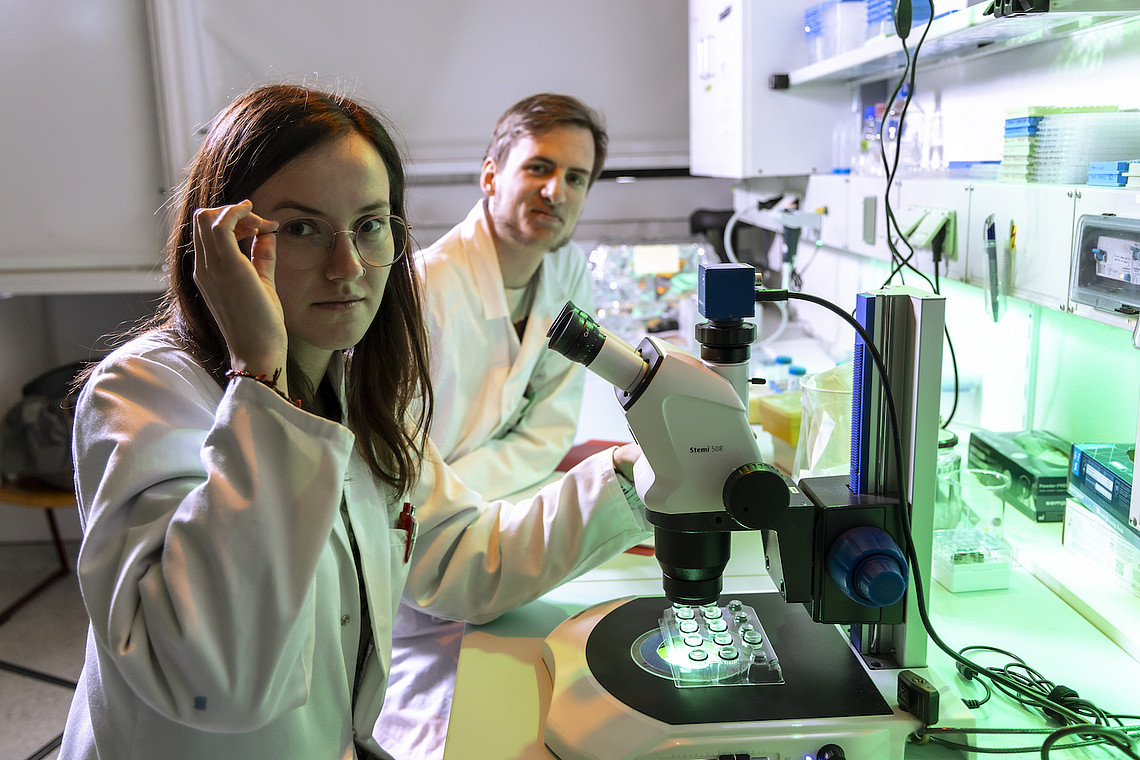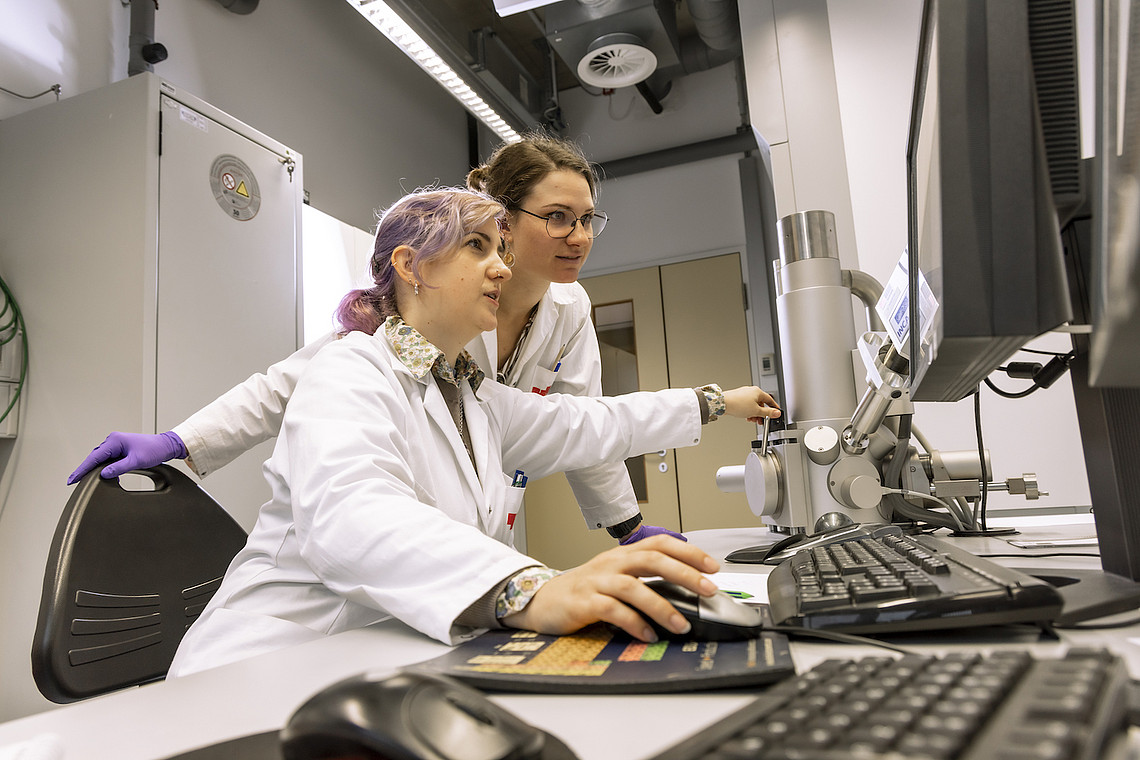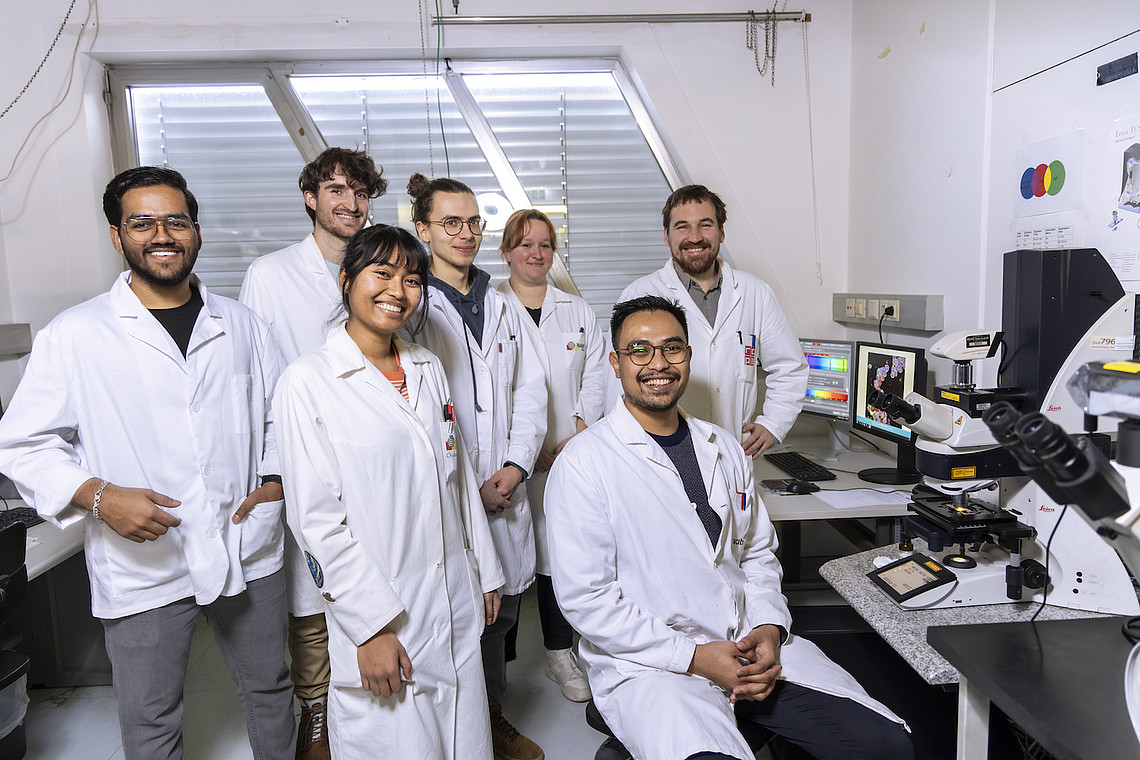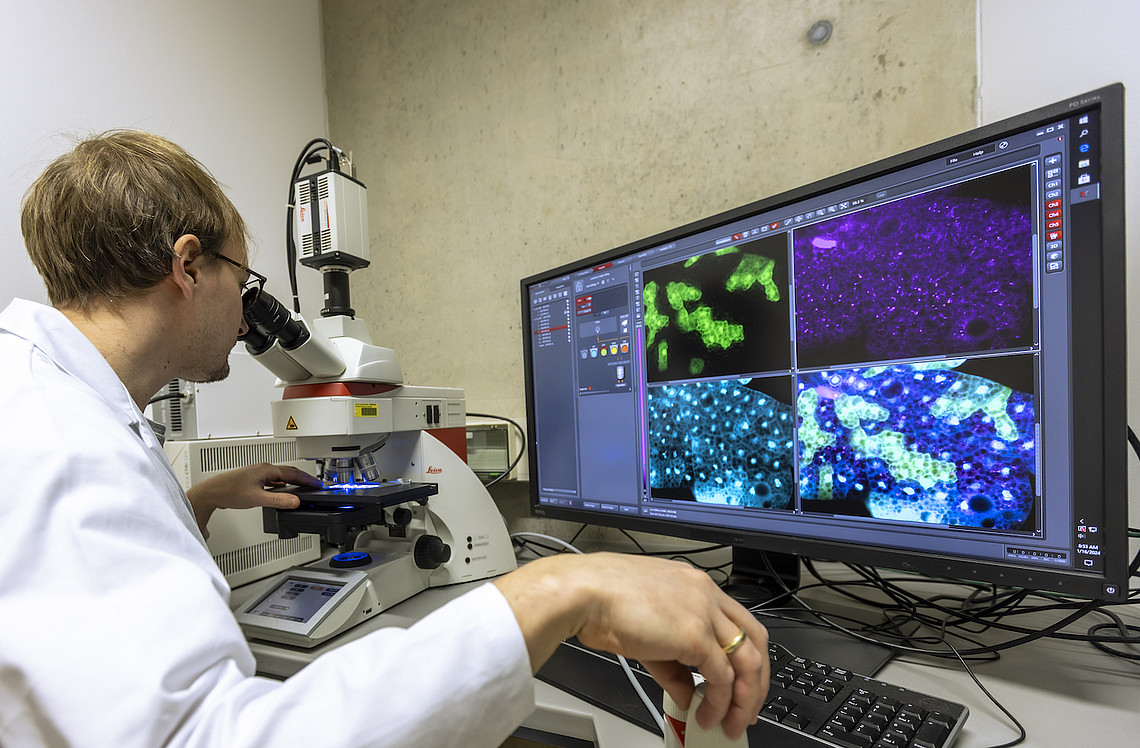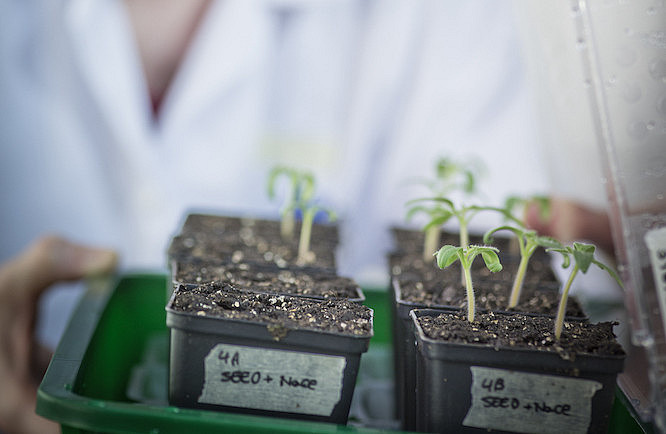Begin of page section: Contents:
NAWI Graz studies in the field of bioscience
Why do strawberries taste so good? - A question to which not all sciences can provide an answer. The molecular biosciences are different: reactions at the molecular level are responsible for the fruity-sweet taste.
Molecular biosciences are located at the interface between biology and chemistry and form the basis for numerous applications in areas such as biotechnology, genetic engineering and biomedicine. The research location Graz is an international leader in this field and covers the entire range of disciplines with its studies.
The Bachelor's degree program in Molecular Biology teaches the basics of molecular biosciences, ranging from general scientific knowledge in chemistry and biology, microbiology and cell biology to molecular biology and genetics. The following skills are taught:
- sound knowledge of and understanding of methods in microbiology, classical and molecular genetics, molecular biology, biochemistry, biotechnology and related fields and their application in science and technology knowledge in the fields of zoology, botany, chemistry and physics
- Computer-aided processing of relevant questions
- scientific ways of thinking and their application
- the ability to apply acquired knowledge universally and interdisciplinarily
- Responsible handling of biological and chemical substances
- awareness of the possible ethical, social and economic implications of the subject area
- Ability to work in a team and oral and written communication skills
Link to the curriculum
The Master's degree program in Biochemistry and Molecular Biomedicine has a strong interdisciplinary focus and is located at the interface between biology, medicine and chemistry. The course focuses on the future-oriented disciplines of medical biochemistry, molecular biology, cell biology and structural biology as well as enzymology. The Master's program prepares students for careers in basic and applied research, especially in the fields of medicine and the pharmaceutical industry. In addition to theoretical training, students learn to independently plan and carry out biochemical and molecular biological experiments and analyses in extensive practical exercises.
Link to the curriculum
The Master's degree course in Molecular Microbiology provides in-depth knowledge in the field of microbiology with a focus on molecular cell biology, bacteriology - especially with the medically relevant aspects of infection biology - and environmental microbiology. In theory, but above all in extensive practical exercises and in the form of modules on molecular microbiology, students are prepared to plan and carry out microbiological and molecular biological experiments and analyses independently. In addition, students develop problem-solving skills and acquire the ability to critically examine existing solutions and the results obtained.
Link to the curriculum
As one of the key technologies of the century, biotechnology uses biological systems to realize applications in industry, agriculture, the environment and medicine. The highly interdisciplinary degree program focuses on the development of skills for the construction of biosystems through molecular engineering strategies as well as on a sound education for the acquisition of specialist knowledge for the development and operation of biotechnological processes and applications. Current issues and future-oriented topics in the fields of molecular biotechnology, bioinformatics, environmental biotechnology and food technologies, enzyme technology, biocatalysis and bioprocess technology are core topics of the Master's degree program in Biotechnology.
Link to the curriculum (courtesy translation)
The Master's degree program in Plant Sciences reflects the diversity of biology using plants as an example and is both basic and application-oriented. This interdisciplinary course is thematically and methodologically broad and offers a sound education in the three areas of "Habitat and Biodiversity", "Physiology and Cell Biology" and "Biotic Interactions". The content ranges from molecular biology and ultrastructural analysis to ecosystem research.
Knowledge from a previous Bachelor's degree in Biology or Molecular Biology is consolidated in the first two semesters. In the third and fourth semesters, students are involved in current research projects at an early stage, which leads to independent, intensive work on a selected topic in the Master's thesis. A great deal of freedom in the composition of elective subjects, coupled with a broad range of courses, allows students to tailor their studies to their individual interests and future career plans.
Link to the curriculum
End of this page section. Go to overview of page sections
End of this page section. Go to overview of page sections
